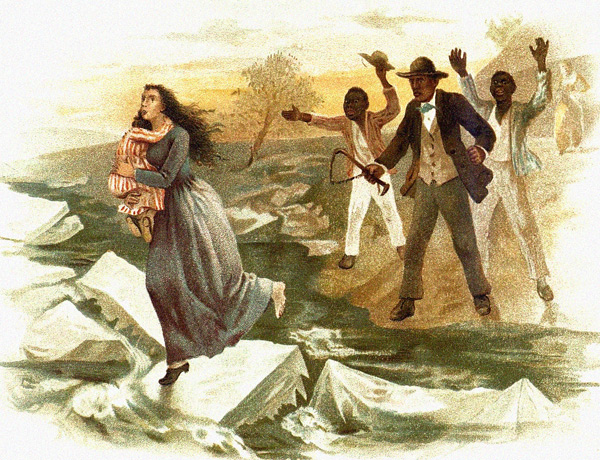James Baldwin writes in Good
Country People “You lucky we pump some white blood into you every once in a
while-your women! Here’s what I got for all the black bitches in the world-!”
The treatment of women and mothers has shown very little difference from Uncle
Tom’s Cabin to the other stories we read pervious. Women are constantly being forced into sexual situations and are
often beaten. In a Street Car Called
Desire by Tennessee Williams, ”’STELLA:
You lay your hands on me and I’ll-[She backs out of sight. He advances and
disappears. There is the sound of a blow. STELLA cries out. BLANCHE screams and
runs into the kitchen. The men rush forward and there is grappling and cursing.
Something is overturned with a crash.]” It is unbelievable the treatment that
women received. How that a woman could be raped or beaten by their husband and
although the other men knew to stop the man from beating Stella they do nothing
to help make sure Stella will be safe in the future. Uncle Tom’s Cabin
expresses the same problem. Women are subjects to their husbands. Outside of
the home women have no power and control. In Flannery O’Connor’s story, Going
to Meet the Man, “Without the leg she felt entirely dependent on
him.” Literally the woman in the story was dependent on the man, because he had
just stolen her prostatic leg. Although I think there is another meaning. Men
want to take control of women and they did take control of them. The idea that
women only had control of the domestic sphere looks like a broken record as I read
these stories. The men in these stories want women to be inferior to them.
Including Uncle Tom’s Cabin look at Mrs. Bird, Mrs. Shelby, and all the other
women, they had no choice, but to listen to their husbands regardless of what
they thought. I am glad to see certain anti-discrimination laws and other laws
have been put into place to allow women to gain back these rights that men have
stripped from them. Although we have come far there is change that is yet to
come as the pay gap between men and women.
William, Tennessee. "Street Car Called Desire." American
Literature. Ed. Nina Baym and Robert S. Levine. Eighth ed. New York: W.
W. Norton & Company, Inc., n.d. 1116-77. Print. Vol. 2 of The Norton
Anthology. 2 vols
Literature. Ed. Nina Baym and Robert S. Levine. Eighth ed. New York: W.
W. Norton & Company, Inc., n.d. 1116-77. Print. Vol. 2 of The Norton
Anthology. 2 vols
Baldwin, James. "Good Country People." American
Literature. Ed. Nina Baym and Robert S. Levine. Eighth ed. New York: W.
W. Norton & Company, Inc., n.d. 1340-53. Print. Vol. 2 of The Norton
Anthology. 2 vols
Literature. Ed. Nina Baym and Robert S. Levine. Eighth ed. New York: W.
W. Norton & Company, Inc., n.d. 1340-53. Print. Vol. 2 of The Norton
Anthology. 2 vols
O'Connor, Flannery. "Going to Meet the Man." American
Literature. Ed. Nina Baym and Robert S. Levine. Eighth ed. New York: W.
W. Norton & Company, Inc., n.d. 1328-39. Print. Vol. 2 of The Norton
Anthology. 2 vols
Literature. Ed. Nina Baym and Robert S. Levine. Eighth ed. New York: W.
W. Norton & Company, Inc., n.d. 1328-39. Print. Vol. 2 of The Norton
Anthology. 2 vols
